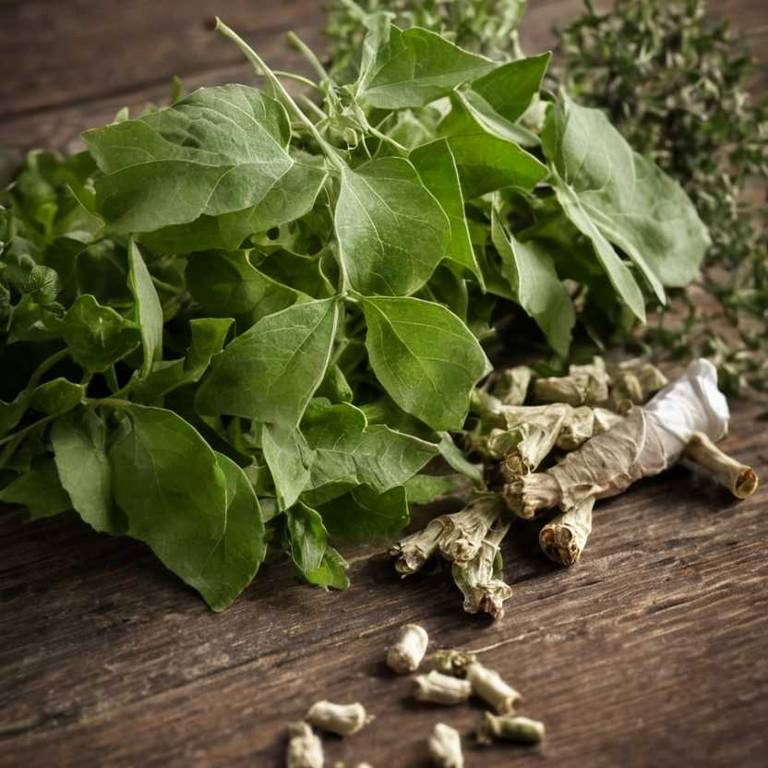10 Best Populus Balsamifera Preparations

The best medicinal preparations of Populus balsamifera are teas, tinctures, decoctions, creams, and mucillages, each offering unique therapeutic benefits.
Teas made from the dried leaves and bark are commonly used to soothe respiratory conditions and reduce inflammation.
Tinctures provide a concentrated form of the herb’s active compounds, often used for internal and external applications.
Decoctions, involving simmering the bark, are valued for their ability to extract potent medicinal properties.
Creams and mucillages derived from the plant are applied topically to treat skin irritations and promote wound healing.
Below there's a list of the 10 best herbal preparations of populus balsamifera for medicinal purposes.
1. Teas
Populus balsamifera teas is commonly used to treat respiratory conditions, such as coughs, bronchitis, and sore throats, due to its soothing and anti-inflammatory properties.
It is also used to alleviate digestive issues like indigestion and nausea, and to support immune function during colds and flu. The most common medicinal uses include respiratory support, digestive aid, and immune system boosting. The bioactive constituents responsible for these effects include flavonoids, tannins, and essential oils, which possess antimicrobial, anti-inflammatory, and expectorant properties.
These compounds work together to reduce inflammation, fight infections, and ease symptoms associated with various ailments.

2. Tinctures
Populus balsamifera tinctures is commonly used to treat respiratory conditions, skin ailments, and inflammatory disorders.
These tinctures are often employed for alleviating symptoms of coughs, bronchitis, and asthma due to their expectorant and anti-inflammatory properties. They are also applied topically to reduce inflammation and promote healing of wounds and skin irritations. The bioactive constituents responsible for these effects include terpenoids, flavonoids, and phenolic compounds, which exhibit antimicrobial, antioxidant, and anti-inflammatory activities.
Additionally, the presence of essential oils contributes to its soothing and therapeutic effects.

3. Decoctions
Populus balsamifera decoctions is commonly used to treat respiratory conditions, skin infections, and inflammatory disorders.
The decoctions are often prepared by boiling the bark or leaves of the plant to extract its medicinal compounds. These preparations are traditionally used for alleviating symptoms of coughs, bronchitis, and sore throats. They are also applied topically to reduce inflammation and promote wound healing.
The bioactive constituents responsible for these effects include tannins, flavonoids, and essential oils, which exhibit antimicrobial, anti-inflammatory, and astringent properties.

4. Creams
Populus balsamifera creams is commonly used to treat skin conditions, inflammation, and respiratory ailments.
These creams are often applied topically to reduce pain, swelling, and irritation associated with conditions like eczema, psoriasis, and minor burns. They are also used in inhalation therapies to alleviate symptoms of coughs and colds. The bioactive constituents responsible for these effects include terpenes, flavonoids, and essential oils, which possess anti-inflammatory, antimicrobial, and analgesic properties.
Additionally, the presence of salicin, a natural compound similar to aspirin, contributes to its pain-relieving and fever-reducing capabilities.

5. Mucillages
Populus balsamifera mucillages is commonly used to treat respiratory tract infections, inflammation, and skin conditions.
The mucillages, which are gel-like substances, are known for their soothing and protective properties. They are often applied topically to wounds, burns, and irritated skin to promote healing. Internally, they are used to alleviate coughs, bronchitis, and other respiratory ailments.
The bioactive constituents responsible for these effects include polysaccharides, flavonoids, and tannins, which exhibit anti-inflammatory, antimicrobial, and wound-healing properties.

6. Capsules
Populus balsamifera capsules is commonly used to support respiratory health, reduce inflammation, and alleviate symptoms of colds and coughs.
They are also utilized for their antimicrobial and expectorant properties, making them effective in treating respiratory tract infections and bronchitis. The most common medicinal uses include easing sore throat, reducing fever, and promoting healing of skin conditions such as eczema and psoriasis. Bioactive constituents like balsamine, cineole, and various terpenes contribute to its anti-inflammatory, antiseptic, and analgesic effects.
These compounds work synergistically to provide the herbal preparation's therapeutic benefits.

7. Oils
Populus balsamifera oils is commonly used to treat respiratory conditions, skin infections, and inflammatory disorders.
These oils have been traditionally applied for their antiseptic, anti-inflammatory, and expectorant properties. They are often used in inhalation therapies for colds, bronchitis, and other respiratory ailments. The most common medicinal uses include alleviating symptoms of coughs, sore throats, and minor skin irritations.
Bioactive constituents such as terpenes, flavonoids, and essential oils contribute to its therapeutic effects by reducing inflammation, fighting pathogens, and promoting healing.

9. Syrups
Populus balsamifera syrups is commonly used to treat respiratory conditions such as coughs, bronchitis, and asthma due to its expectorant and anti-inflammatory properties.
These syrups are also used to alleviate sore throat and reduce fever, making them popular in traditional medicine. The most common medicinal uses include treating respiratory infections, reducing inflammation, and easing symptoms of colds and flu. The bioactive constituents responsible for these effects include volatile oils, flavonoids, and terpenes, which have antimicrobial, antitussive, and bronchodilator properties.
These compounds work together to soothe the respiratory tract and promote healing.

10. Lozenges
Populus balsamifera lozenges is commonly used to alleviate respiratory conditions such as coughs, sore throats, and bronchitis due to their soothing and antimicrobial properties.
These lozenges are also used to reduce inflammation and promote healing in the throat, making them popular for treating colds and other upper respiratory infections. The bioactive constituents responsible for these effects include essential oils like camphor, cineole, and alpha-pinene, which have expectorant, anti-inflammatory, and antimicrobial actions. Additionally, the lozenges may contain tannins and flavonoids that contribute to their healing properties.
Overall, Populus balsamifera lozenges are valued for their ability to support respiratory health and comfort.
